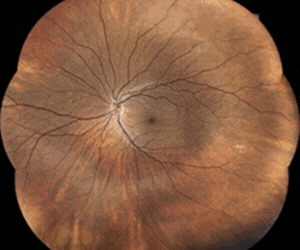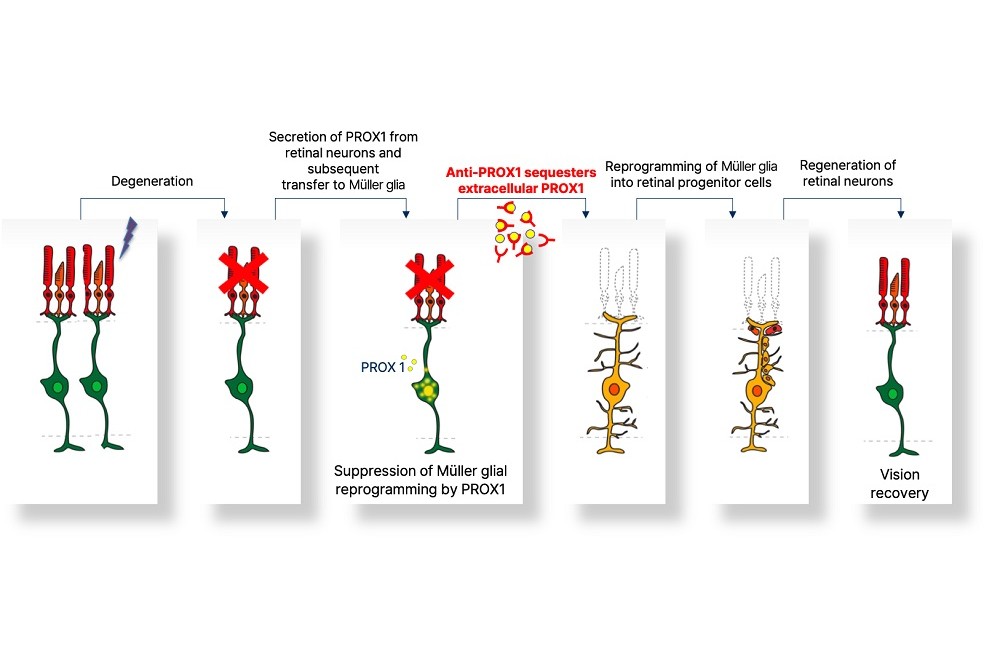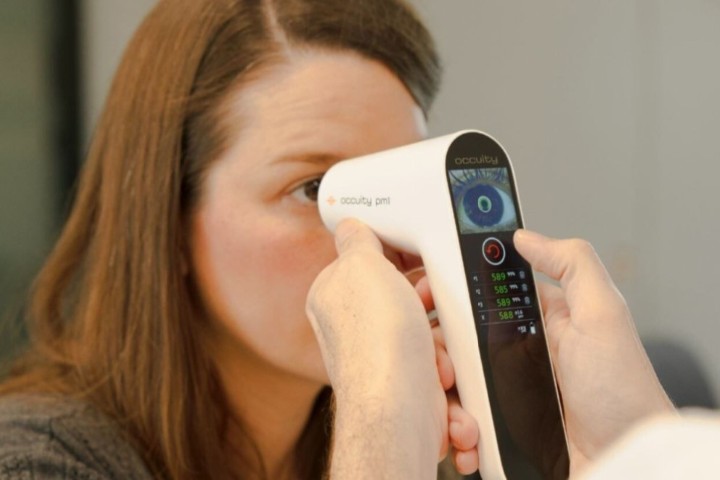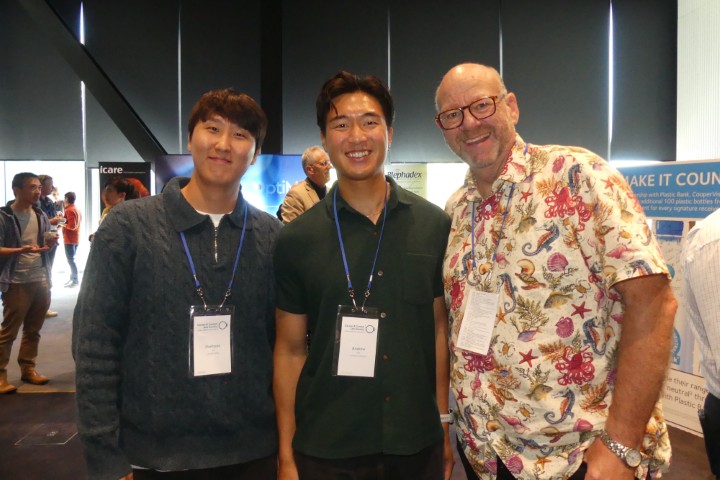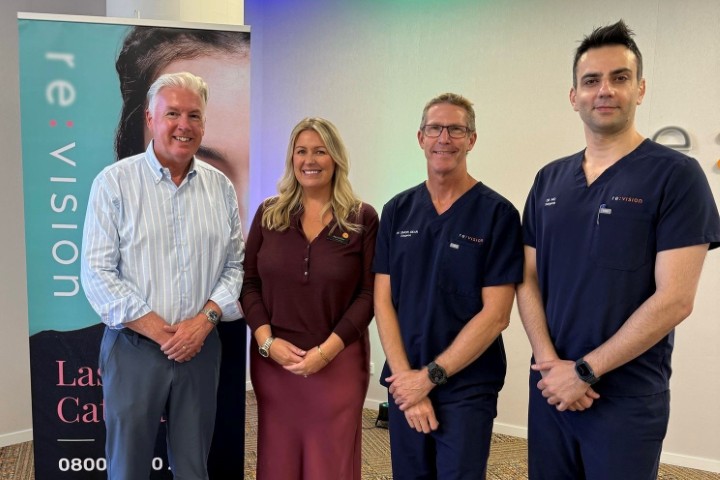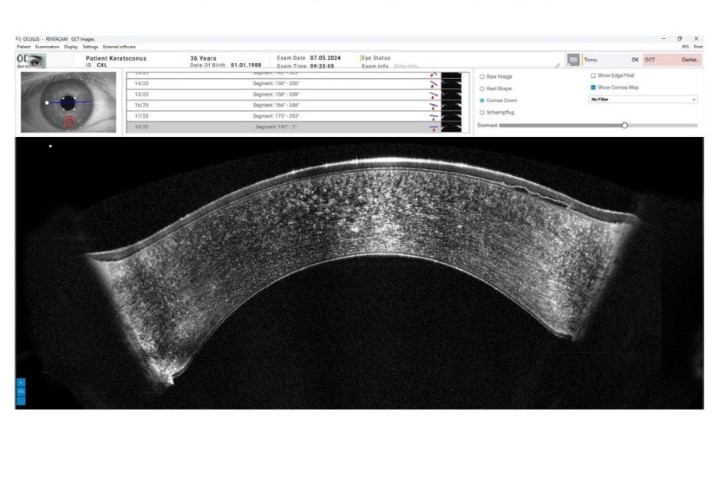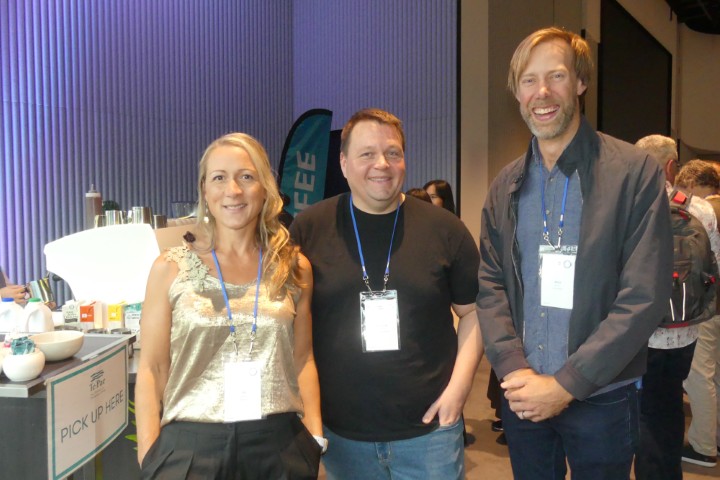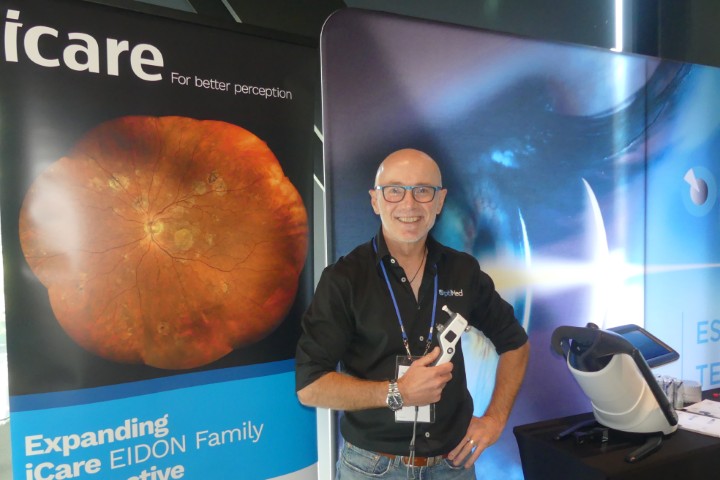Hope for retinal damage reversal
A new antibody-based treatment regenerates retinal nerves in mouse models, with the effects lasting more than six months, said its South Korean developers.
Writing in Nature Communications, researchers at the Korea Advanced Institute of Science & Technology (KAIST) said studies of cold-blooded animals have shown retinal injuries trigger Müller glia cells to dedifferentiate into retinal progenitor cells, which then generate new neurons. However, in mammals this process is impaired, leading to permanent retinal damage. KAIST researchers found the protein prospero homeobox 1 (PROX1) is absent in the Müller glia of fish but accumulates in damaged mouse retinas, inhibiting dedifferentiation of their Müller glia.
The KAIST team was led by Professor Jin Woo Kim, whose company, Celliaz Inc, developed a PROX1-binding antibody. Administering this antibody to disease-model mouse retinas significantly promoted neural regeneration, said researchers. The company said it will develop the treatment for application in various degenerative retinal diseases, aiming to begin clinical trials by 2028.






